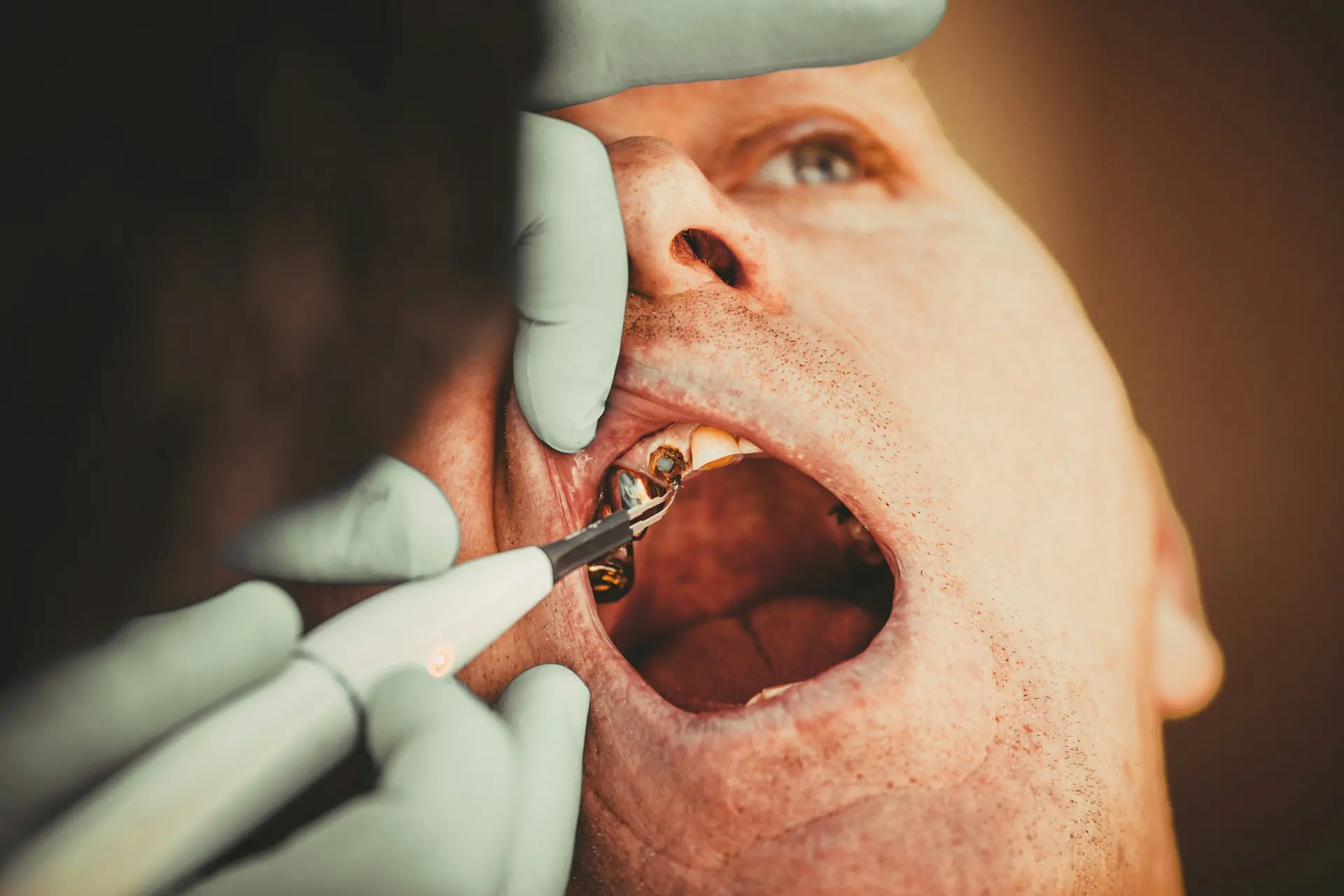
04 Aug 3 Common Reasons for Tooth Pain
Tooth pain is not only unpleasant, it also can interrupt your daily life. It can keep you from eating healthy foods or doing things you enjoy. And if the root cause is not treated, the pain will only get worse.
Pain is your body’s way of letting you know there is a problem. Sometimes tooth pain can wait, but in other situations, you may need urgent dental care. Our dentists discuss the three most common reasons for tooth pain and explain why you shouldn’t wait to schedule an exam.
Why Do My Teeth Hurt?
Tooth pain can stem from many causes, but most of the time, it’s because of poor oral health. When plaque and bacteria build up on your teeth, they produce acids that eat away at the tooth enamel and irritate the gum tissue. This can lead to thinning enamel, cavities, and gum disease.
But teeth can also be damaged by accidents, injuries, or biting on something too hard. Let’s take a closer look at the three most common reasons for tooth pain.
1: Cavities and Tooth Decay
Type of Pain: Typically felt when biting down, worse when eating sweets, or hot or cold items.
Dental Visit: You should be able to wait for the next available appointment.
Explanation: Cavities and tooth decay can look like dark spots or even holes in your teeth. You might need fillings, crowns, or even a root canal.
While You Wait: Keep your mouth clean by brushing your teeth, flossing, and using mouthwash to keep the decay from getting worse. The sooner you see a dentist for restorations, the better.
2: Tooth Sensitivity
Type of Pain: Usually felt along the gumline, it may affect one or more teeth. May feel like your teeth are burning, freezing, or throbbing. It is usually worst when drinking something hot or cold.
Dental Visit: Not urgent, but be sure to mention it at your next checkup. Make an early appointment if the pain is frequent.
Explanation: Tooth sensitivity occurs when the enamel on your teeth becomes thin and exposes the pulp of your teeth. It can also be caused by receding gums that expose the unprotected tooth roots.
How to Help It: Toothpaste and mouthwash for sensitive teeth can help alleviate the pain, but it typically takes about 30 days of consistent use before you see a difference. If your gums look red or swollen, or if they bleed when you floss, you probably have gingivitis. Your dentist may recommend treatment for gum disease.
3: Chipped, Fractured, Or Damaged Teeth
Type of Pain: Depending on the type of damage, the pain can be a throbbing underneath the gums or a sharp pain that radiates into the jaw.
Dental Visit: Ask for a same-day appointment if a significant amount of the tooth is missing or if you are in constant pain.
Explanation: Chipped, fractured, or damaged teeth can cause intense pain, especially if the cause was a traumatic injury. Always get a broken tooth checked out right away. Waiting leaves the tooth vulnerable to further damage and infections that could affect your entire body.
Pain Relief Before Your Appointment: Cover any sharp parts with orthodontic wax. If the tooth is very painful, take an over-the-counter pain reliever like. Ibuprofen (Advil) is good, because it also treats inflammation. If you are unable to take NSAIDs, use acetaminophen (Tylenol).
Dental Care When You Need It Most
Tooth pain is your body’s way of telling you there is something wrong. Ignoring it will not help you feel better, but a trip to the dentist might. From filling a cavity to fixing a broken tooth to treatment for gum disease, we’re here for you.
Don’t let your tooth pain get any worse! Contact Hicks Dental Group in Prescott to make an urgent appointment.
Images used under creative commons license – commercial use (8/3/25). Photo by Evgeniy Kozlov on Unsplash

